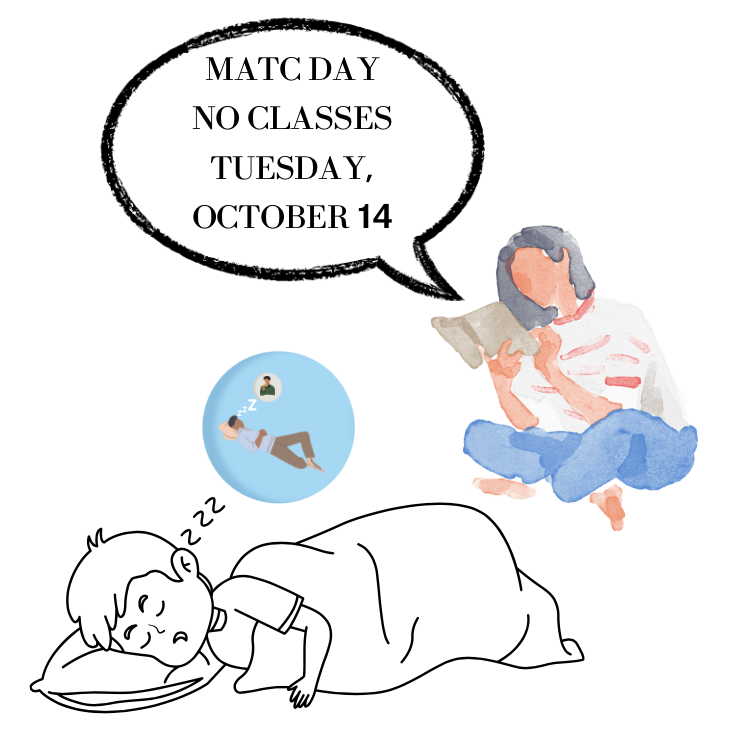It’s that time of year again! With just a few weeks left in the semester, finals are right around the corner. Whether you have papers, projects, exams, or all of the above on your plate, you’re probably starting to feel the pressure. Here are some tips to help you cope with end-of-semester stress and finish the Fall term strong:
- Get organized. Develop a schedule with all your remaining due dates, then break down the projects into smaller parts and decide when to do what. Use a calendar to schedule specific tasks so that you can avoid trying to cram it all in at the last minute.
- Connect with a study buddy or group. Studying with other people can help not only with motivation and information retention, it can also help curb anxiety by providing direct support. If you’re finding a concept or task particularly challenging, chances are others are as well, and tackling the issue as a group often leads to improved understanding and a sense of solidarity against the problem.
- Exercise. Regular moderate exercise is one of the most effective ways to reduce overall levels of anxiety, but even brief, one-shot periods of physical activity can help when you’re feeling stressed. Try a short walk, some yoga, jumping jacks, dancing–anything to get your body moving for a few minutes. This will help your nervous system “reset” and reduce your body’s output of stress hormones.
- Get enough sleep. Resist the urge to pull all-nighters, and be mindful of the amount of caffeine you’re consuming, so you don’t end up cheating your brain of the rest it needs to be able to perform well when you want it to.
- Take a 10 minute break for each hour of study time. Your anxiety may be telling you to “power through” for hours on end, but studies suggest that energy levels, concentration, and focus actually improve when students take a small rest break at regular intervals. Do some stretching, text a friend, go for a quick walk, drink a glass of water or have a healthy snack –your brain will thank you.
- Use breathing exercises to help “spot treat” stress and anxiety. Structured breathing exercises can do wonders for an amped-up central nervous system. One very simple exercise is the 1:2 ratio breath: Take a deep breath in, to a count of 3 or 4, then blow it out for twice that long (e.g., a count of 6 or 8). Repeat for a few minutes and then resume normal breathing. There are other effective techniques out there too; just Google “breathing exercises for relaxation.”
- Stay in the present and focus on one task at a time. Ruminating on how LONG your to-do list is can leave you feeling overwhelmed, and it can interfere with information retention and productivity. Tackle one activity at a time, and when you feel your mind starting to wander (or catastrophize), gently redirect yourself back to the current task. Other worries can wait.
If your stress levels are so high that they’re interfering with your ability to sleep, eat or complete normal daily tasks, or if you’re having thoughts that are concerning or disturbing you, it’s time to reach out for professional support. If you or someone you know may be at risk for harming themselves or another person, please call 911, call or text 988, or reach out to Public Safety at 414-297-6200. To request an appointment for non-emergency Counseling support, email [email protected].
Remember, you’ve come this far, and it’s important to acknowledge everything you’ve accomplished along the way. In these final few weeks of the semester, show yourself the same compassion and encouragement you would to a friend. You deserve it!

































































